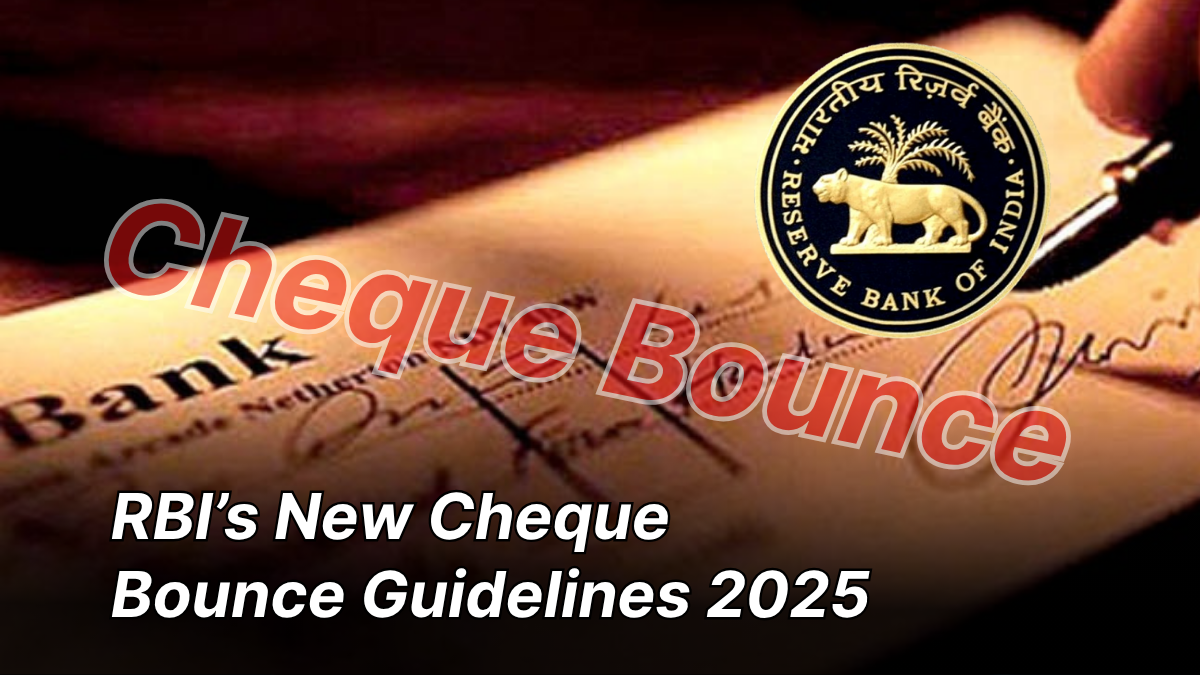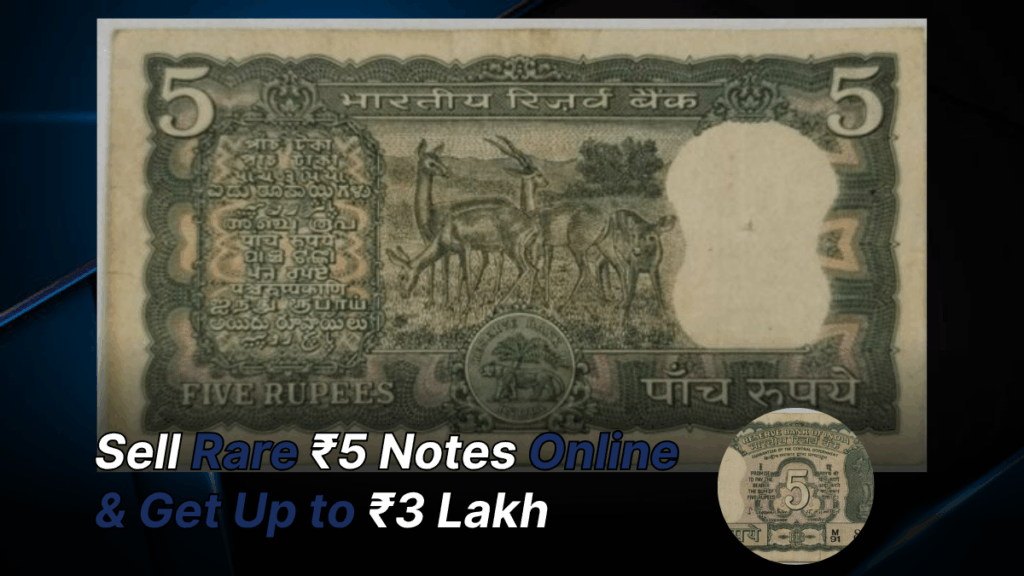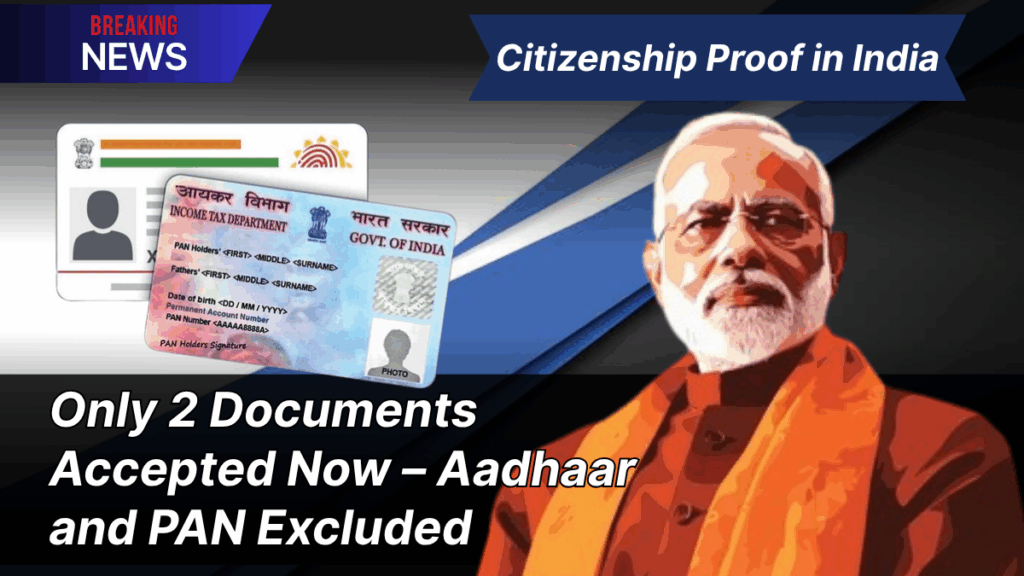In April 2025, the Reserve Bank of India (RBI) introduced comprehensive reforms to address the persistent issue of cheque bounces. These new regulations aim to promote financial discipline, reduce fraudulent activities, and enhance transparency in banking transactions. The updated framework has significant implications for individuals, businesses, and financial institutions across India.
Summary Table: Cheque Bounce New Rules 2025

| Feature | Previous System | 2025 Reforms |
|---|---|---|
| Notification Timeline | Varied across banks; often delayed | Mandatory within 24 hours via SMS and email to both parties |
| Penalty Structure | Varied across banks | Standardized across all financial institutions |
| Account Restrictions | Limited or inconsistent | Temporary account freeze after three consecutive cheque bounces |
| Legal Action Timeline | 30–60 days | Initiation within 30 days |
| Complaint Filing | Through bank branches | Streamlined online complaint system |
| Data Sharing | Limited | Centralized database accessible to all banks |
| Cheque Book Ban | Permanent ban in many cases | Discouraged; focus on temporary restrictions |
Understanding the Need for Change
Cheque bounces have long burdened India’s judicial system, with numerous cases under Section 138 of the Negotiable Instruments Act, 1881. Despite the rise of digital payments, cheques remain vital for many transactions. The RBI’s 2025 rules address key concerns:
- Lengthy Legal Proceedings: Streamlining processes to reduce court backlogs.
- Inconsistent Penalties: Implementing uniform penalties across banks.
- Repeat Offenders: Introducing stricter measures for habitual defaulters.
- Notification Delays: Ensuring timely communication to involved parties.
- Judicial Burden: Reducing the number of cases reaching courts through preventive measures.
Key Features of the 2025 Reforms
1. Real-Time Notification System
- Timeline: Banks must notify both the drawer and payee within 24 hours of a cheque bounce.
- Method: Notifications sent via SMS and email.
- Content: Detailed explanation of the reason for dishonour.
2. Standardized Penalty Structure
To eliminate confusion and ensure fairness, the RBI has implemented a uniform penalty structure:
| Cheque Amount | Penalty Range |
|---|---|
| Up to ₹10,000 | ₹150 – ₹300 |
| ₹10,001 – ₹1,00,000 | ₹500 – ₹750 |
| Above ₹1,00,000 | ₹750 – ₹1,000 |
Note: Penalties may escalate for repeat offenses.
3. Centralized Monitoring System
- Database: Maintains records of all cheque bounce incidents across banks.
- Access: Available to all financial institutions to assess customer history.
- Purpose: Flags frequent defaulters to prevent systemic abuse and inform lending decisions.
4. Measures for Repeat Offenders
| Offense Count | Consequence |
|---|---|
| First Offense | Standard penalty and notification |
| Second Offense | Higher penalty and warning notice |
| Third Offense | Temporary account freeze for cheque transactions |
| Multiple Offenses | Flagged in central database; potential credit and legal implications |
5. Streamlined Legal Process
- Complaint Filing: Online system for faster processing.
- Documentation: Clear requirements to reduce procedural delays.
- Timelines: Defined stages for legal proceedings.
- Settlements: Provisions for amicable resolutions before court involvement.
6. Exemptions and Safeguards
- Technical Errors: No liability if bounce occurs due to banking system faults.
- Investigations: Banks must investigate before imposing penalties.
- Dispute Resolution: Simplified process for contesting wrongful dishonours.
- Relief Provisions: Guidelines for genuine errors to avoid undue penalties.
Impact on Stakeholders
For Individuals
- Immediate Alerts: Quick notifications allow prompt action.
- Clear Penalties: Understanding consequences aids in financial planning.
- Opportunity for Rectification: Time to address issues before legal escalation.
For Businesses
- Predictable Processes: Uniform rules reduce uncertainty.
- Reduced Legal Risks: Early warnings help avoid litigation.
- Enhanced Trust: Reliable cheque transactions bolster business relationships.
For Banks
- Operational Efficiency: Standardized procedures streamline operations.
- Risk Management: Centralized data aids in assessing customer reliability.
- Compliance: Clear guidelines ensure adherence to regulations.
Preventive Measures Recommended by RBI
- Maintain Adequate Balance: Ensure sufficient funds before issuing cheques.
- Use Digital Alternatives: Opt for UPI, NEFT, RTGS, or IMPS for time-sensitive payments.
- Enable Alerts: Set up notifications for low balances and transactions.
- Verify Cheque Details: Double-check date, amount, and signature before issuance.
- Avoid Post-Dated Cheques: Be cautious with future-dated cheques to prevent issues.
Implementation Timeline
| Phase | Timeline | Focus Areas |
|---|---|---|
| Phase 1 | April 2025 | Notification system and standardized penalties |
| Phase 2 | July 2025 | Central database and repeat offender provisions |
| Phase 3 | October 2025 | Digital complaint system and legal process reforms |
| Final Phase | January 2026 | Complete integration and compliance review |
Expected Outcomes
- Reduced Cheque Bounce Incidents: Stricter penalties and monitoring deter offenses.
- Lower Judicial Burden: Streamlined processes decrease court cases.
- Enhanced Transparency: Uniform rules build trust in the banking system.
- Improved Financial Discipline: Clear consequences encourage responsible behavior.
- Efficient Recovery: Defined procedures aid in fund recovery for payees.
FAQs About Cheque Bounce New Rules 2025
Q: Are digital payments replacing cheques under the new rules?
A: While digital payments are encouraged, cheques remain a valid instrument. The new rules aim to make cheque transactions more reliable.
Q: Will my account be frozen after a single cheque bounce?
A: No. Account freezing is considered after three consecutive cheque bounces, with prior notifications and warnings.
Q: How can I check if I’m listed in the RBI’s central database for cheque bounces?
A: Banks are required to inform customers if they are flagged in the central database and provide steps to address any discrepancies.
Q: Do these rules apply to all banks in India?
A: Yes. The RBI’s regulations are applicable to all scheduled banks operating within India.
Q: What should I do if my cheque bounces due to a bank error?
A: If the bounce is due to a technical or clerical error by the bank, you are not liable. Contact your bank immediately to resolve the issue.
Conclusion
The Cheque Bounce New Rules 2025 mark a significant advancement in India’s financial regulatory landscape. By introducing stricter penalties, enhancing transparency, and streamlining legal processes, the RBI aims to foster a more disciplined and trustworthy banking environment. Staying informed and adhering to these regulations is crucial for individuals and businesses to maintain financial credibility and avoid potential penalties.
For more detailed information, visit the Reserve Bank of India official website.
For More Information Click Here






